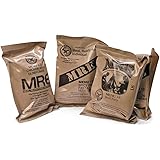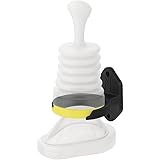Understanding Your Environment
Assess Your Location
Alright, let’s dive right in! First things first, knowing the ins and outs of your environment is super important when you’re living in more remote areas. I remember when I first moved out to a rural area, not really having a clue about the wildlife or weather patterns. It’s not just about the beautiful scenery, but what can come with it!
Start by checking out local resources. Websites, local government offices, or even chatting with neighbors can provide you invaluable info on potential hazards. Are there wildfires, floods, or tornado risks? Each location has its surprises, and being prepared is half the battle.
Get to know the terrain too. Are there trails nearby? Is the local road reliable, or does it wash out during heavy rains? Understanding these nuances helps you strategize when planning your supplies and emergency routes.
Know Common Emergencies
Next up is knowing the common emergencies in your area. Grab a cup of coffee and do your research! I recall spending hours looking up common disasters where I live, and it was eye-opening. Sometimes, it’s not the big scary things that you need to prep for, but the everyday nuisances that can turn critical.
For example, if you’re in an area prone to earthquakes, you might wanna have a solid plan for what to do when the ground starts shaking. But if hurricanes are more prevalent, different strategies will apply. Tailoring your emergency plan to local risks will give you peace of mind.
Plus, don’t forget to talk to your community. Local Facebook groups or town meetings can be great sources for recent trends regarding emergencies. It’s all about learning from each other!
Emergency Supplies
And, of course, you gotta stock up on those emergency supplies! I learned this the hard way—running out of essentials during a storm is no fun at all. Make a list of necessary supplies that suits your unique situation, and trust me, don’t skimp!
Water is the top tier! You’ll want at least a gallon per person per day for a minimum of three days, and then add a bit more for your pets. Food supplies that are non-perishable, like canned goods and dried fruits, are great. I even suggest adding some comfort items like chocolate; it helps when times get tough!
== > What if ... Get a FREE Subscription to PREPARE
And then there are tools and first-aid kits. A good flashlight, a multi-tool, and a proper first aid kit can make a world of difference. Trust me, organizing these supplies ahead of time will save you a lot of headache!
Communication Plans
Stay Connected
Now, let’s chat communication! If there’s a power outage or natural disaster, you’ll want to ensure you can still reach out for help or get updates. I’ve had instances where my phone died, and I was left in the dark. Not a great feeling!
Having a back-up plan is key. Consider investing in solar chargers or portable battery packs for your phones. And while we rely on cell phones nowadays, don’t forget the good old-fashioned radio; it could be a lifesaver during emergencies!
Also, buddy up with your neighbors! If you’re ever in a pinch, they can be your lifeline for information or even just checking on how you are doing. Being part of a community goes a long way in making you feel safer.
Establish a Contact List
Creating a contact list may seem simple, but I promise it’s crucial. Make sure you have the phone numbers of family, friends, and emergency services handy. I once had to dig through my phone during an emergency, and it slowed me down.
Create a physical copy too, and place it in your emergency kit. In the chaos of a situation, it’s easy to forget who to call first. Knowing exactly who to reach out to can help you stay calm.
Lastly, make sure those contacts know your plan. Inform them of your living situation and the kinds of emergencies you might face. Having a network ensures someone’s looking out for you, even from afar!
Emergency Drill
And yes, I know, drills sound like a chore, but practicing your emergency plan can be a game changer! Just like fire drills in school, practicing your plan keeps everyone informed about what to do in case of an emergency. It’s like a dress rehearsal for real life!
Enlist family or housemates to go through scenarios together. What if there’s a flood? Where do you gather? What’s your escape route? You can even make it a game to keep spirits up! It’s important to get your head in the game.
Get Preparedness and Self-Reliance Tips. Subscribe Now!
Remember, nobody wants to think about emergencies, but having a plan makes facing them a lot less daunting. Trust me, I’ve been there!
Mental Preparedness
Recognizing Stressors
Now, let’s talk mental health. Living in remote areas can be isolating, and it’s essential to prepare mentally as well. When the going gets tough, recognizing your stressors can help you keep your head on straight. I’ve gone through bleak moments; knowing what triggers my stress made a difference!
Be aware of signs of stress or anxiety, and remember, it’s okay to talk about it. Building a support network is vital—you’re not alone in this. I always found solace through friends and family who understood my worries.
Consider finding a routine that includes both work and relaxation. If you schedule your day, it not only helps in productivity but also keeps those pesky anxieties at bay.
Developing Coping Strategies
When disaster strikes, having coping strategies in place is a great way to manage stress. Get into habits that bring you peace during tough times; whether it’s reading, gardening, or a bit of yoga, find what vibes with you. I’ve learned that finding joy in the simple things can be grounding!
And don’t underestimate the power of mindfulness! Try meditation or just taking a couple of deep breaths when feeling overwhelmed. Sometimes just stepping outside and looking around can remind you that life is still beautiful.
When tough situations arise, these little techniques will help you tackle them without feeling so helpless. You’ve got this!
Community Engagement
Engaging with your community can provide a feeling of belonging. It’s powerful to know that you’ve got people around you looking out for one another. I often attend local events, and you all know how a friendly chat can make a gloomy day brighter.
Join local volunteer efforts, or start a neighborhood watch program! This not only helps you stay connected but also builds trust. Plus, you’ll learn from others about their own coping strategies and tips. It can be so uplifting!
And hey, let’s not forget the laughter! Sharing a joke or a cup of coffee can lighten the mood during tough times. We’re all human after all, and sharing those moments of joy helps keep spirits high!
Final Thoughts
So there you have it! Being prepared for emergencies in remote living isn’t about living in fear, but rather taking proactive steps to ensure your safety and peace of mind. With a solid plan, a sense of community, and a touch of humor, life can continue to be enjoyable, no matter where you are.
Remember, it’s all about taking it step by step! From knowing your environment to staying mentally fit, each piece is vital. So get out there, make connections, and keep prepping—your future self will thank you!
FAQ
1. Why is it important to assess my location for emergency preparedness?
Understanding your environment helps you identify local hazards and tailor your emergency plan accordingly, ensuring you’re ready for anything that comes your way.
2. What should I include in my emergency supply kit?
Your kit should include water, non-perishable food, a first-aid kit, tools, and any medications you might need. Don’t forget comfort items like snacks or games!
3. How can I prepare mentally for emergencies?
Acknowledge stressors and develop coping strategies, such as engaging in hobbies or mindfulness practices. Connecting with your community can also help alleviate feelings of isolation.
4. What’s a good way to engage with my community for preparedness?
You can join community events, volunteer for local organizations, or even start conversations with neighbors to build a supportive network focused on preparedness.
5. Should I practice my emergency plan with others?
Absolutely! Practicing with family or housemates ensures everyone knows what to do during an emergency, making it easier to stay calm and act decisively.
Get Preparedness and Self-Reliance Tips. Subscribe Now!
Related Content
Stealth Angel Survival - 72 Hour Family Emergency Kit - 1-5 Person Survival Bag for Earthquakes, Hurricanes, and Other Natural Disasters
Now retrieving the price.
(as of February 25, 2026 10:24 GMT -05:00 - More infoProduct prices and availability are accurate as of the date/time indicated and are subject to change. Any price and availability information displayed on [relevant Amazon Site(s), as applicable] at the time of purchase will apply to the purchase of this product.)





